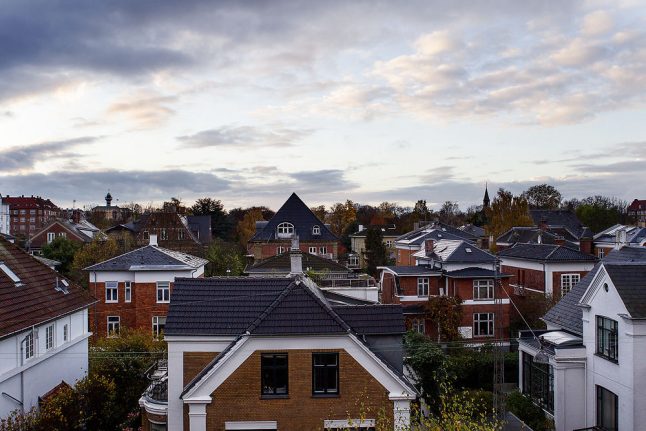Sixty percent of real estate agents contacted for a study conducted by the Association of Swedish Real Estate Agents (Mäklarsamfundet) believe Sweden’s new mortgage cap, introduced on October 1st, 2010, is effective.
However, the organisation has expressed concern over the substantial drop in home purchases by disadvantaged groups, especially first-time buyers. Association President Jeanette Gustafsdotter called it a “class issue” when rich parents pitch in to help out with home purchases.
Current rules limit new mortgages to a maximum of 85 percent of the home’s market value.
The study conducted by the organisation shows that the most common way of financing the remaining 15 percent is through loans from parents, who in turn mortgage their own homes.
Over 1,000 brokers responded to questions about the new mortgage rules in the study.
At the same time, economically disadvantaged groups have disappeared from the market, primarily first-time buyers, according to the organisation. An increasing number of loan applications are denied, while it now takes a longer time to sell a home.
Those who already own a homes have an even bigger head start on the housing market, according to the organisation.
“We have already warned about this development in our comments on the proposal to introduce the mortgage cap when it was circulated for consideration. The most important thing for a healthy housing market is flexibility. Now children are forced to keep living at home,” said Gustafsdotter.
“There is also a class issue. Not everyone has parents or relatives who can afford to lend them the other 15 percent,” she added.
Gustafsdotter feels that the government should instead impose stricter requirements on banks and their mortgage calculations.
Swedish bank SEB’s private economist Gunilla Nyström was a little surprised by the association’s report.
“There has been much talk about alternative borrowing opportunities, such as through more expensive unsecured loans. However, households are not stupid and do not treat their homes like a bank machine for sundry consumption,” she said.
“When one sees that there is a risk for repayment requirements and worsening tax deductions and interest rates going up, it results in a dampening effect on lending,” added Nyström.
For now, the only option for young people in Sweden who do not have parents who can help them out with loans is to save, especially before they have a family of their own or development expensive habits, she said.
“When one goes from getting by on student loans of 8,000 kronor ($1,240) a month to a job that may pay 15,000 to 16,000 kronor a month, one can try to save a few thousand kronor a month. Within that, there is still room for more entertainment and clothing than during one’s studies,” said Nyström.
According to Statistics Sweden, the annual growth rate for home loans was 8.5 percent in December 2010, the lowest since it began keeping comparable data in December 2002.
“The mortgage cap has definitely contributed to this,” said Gustafsdotter.
While Housing Minister Stefan Attefall was sympathetic to the difficulties facing young home buyers, he argued the mortgage cap was having the desired effect.
“One has to be clear that it’s sound to not let indebtedness rise at the pace it has been. It’s not sustainable in the long term. No person should put themselves into a debt situation they can’t manage,” he told the TT news agency.
He suggested that young would-be home buyers should be “encouraged to save” in order to afford buying a home.



 Please whitelist us to continue reading.
Please whitelist us to continue reading.
Member comments